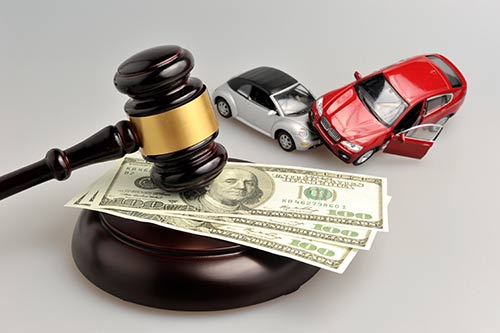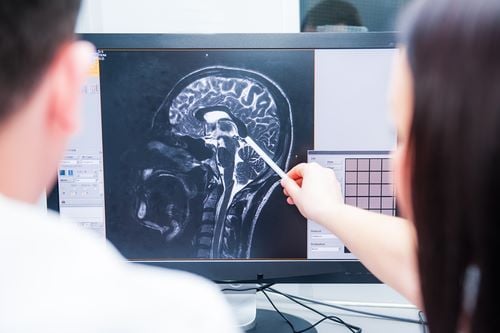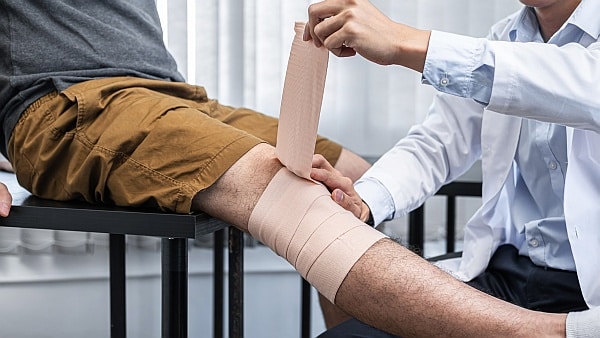At Hurt 911®, we specialize in treating injuries from car accidents. Our team of experienced medical professionals offers comprehensive evaluations, personalized treatment plans, and works closely with top personal injury lawyers to ensure you receive the compensation you deserve. With multiple convenient locations across Georgia, including Atlanta, Lithonia, McDonough, Morrow, and Decatur, we are here to support your recovery every step of the way.
Car accidents often happen without warning and can leave people with a wide range of injuries. Some are obvious right away, while others take time to appear. Understanding the most common car accident injuries helps injured persons seek the right care quickly. From soft tissue damage to serious head trauma, each injury needs proper evaluation and treatment.
In this blog, we cover the most common car accident injuries and explain why seeing an experienced Atlanta car accident doctor is essential for proper diagnosis, treatment, and recovery.
Whiplash and Neck Injuries
Whiplash and other neck injuries are among the most common car accident injuries, especially in rear-end collisions.
What Causes Whiplash
Whiplash occurs when the head moves rapidly back and forth due to sudden force, often from a car crash. This motion strains the muscles, ligaments, and soft tissue in the neck. Rear-end collisions are a leading cause of whiplash injuries.
Common Symptoms of Neck Injuries
Neck pain, stiffness, reduced range of motion, and headaches are frequent symptoms. Some injured persons may also experience dizziness, blurred vision, or shoulder pain. These symptoms may not appear immediately, which is why seeking immediate medical attention is critical.
Why Soft Tissue Injuries Are Often Overlooked
Soft tissue injuries do not always show up on standard imaging tests. Because of this, many people ignore early signs or delay treatment. Whiplash and related soft tissue damage can lead to chronic pain if untreated. Proper diagnosis and early care help reduce long-term complications.
Importance of Medical Treatment For Car Accident Injuries
Even if neck pain seems minor, it should be evaluated by medical professionals who understand car accident injuries. At Hurt 911®, our doctors assess the full extent of neck and soft tissue damage and provide pain management and rehabilitation when needed.
Long-Term Effects if Untreated
Untreated whiplash can result in ongoing neck stiffness, nerve irritation, and chronic discomfort. In more severe cases, neck injuries may affect sleep, mobility, and quality of life. Early intervention is the best way to prevent lasting problems from these injuries.
Back Injuries and Spinal Cord Trauma
Back injuries and spinal cord trauma are serious injuries that often result from car accidents, especially high-impact crashes.
Types of Back Injuries
Car accidents can cause a range of back injuries. These include herniated discs, muscle strain, spinal fractures, and soft tissue injuries. Lower back pain is one of the most common complaints after a crash. Even low-speed collisions can cause damage to muscles, ligaments, or spinal joints.
Understanding Spinal Cord Injuries
Spinal cord injuries are more severe. They can lead to partial or complete loss of movement and feeling. Damage to the spinal cord disrupts communication between the brain and body. These injuries often require emergency medical treatment and long-term care. In some cases, they result in permanent disability.
Signs That Require Immediate Medical Attention
Severe back pain, numbness, tingling, and weakness in the limbs may indicate a spinal cord injury. Loss of bladder or bowel control is another warning sign. These symptoms require immediate medical care to reduce the risk of further damage.
Long-Term Impact of Back and Spinal Cord Injuries
Back injuries can lead to chronic pain, reduced mobility, and difficulty performing daily tasks. Spinal cord injuries may require ongoing physical therapy, assistive devices, and home modifications. These conditions often impact a person’s quality of life for years after the crash.
The Role of Proper Medical Treatment
Prompt evaluation and treatment are critical. At Hurt 911®, we provide diagnostics, pain management, and access to orthopedic and neurological specialists. Identifying injuries early improves recovery and helps prevent long-term complications.
Head Injuries and Concussions
Head injuries are common in car accidents and can range from mild concussions to severe traumatic brain injuries.
How Head Injuries Happen
Head injuries often occur when the head strikes a hard surface such as the steering wheel, dashboard, or window during a car crash. Even without a direct hit, the brain can move inside the skull due to sudden impact, leading to damage. This makes head trauma a risk even in minor collisions.
Common Types of Head Injuries
Concussions are the most frequent type of brain injury caused by car accidents. Other injuries include skull fractures, brain contusions, and internal bleeding. In more severe cases, a traumatic brain injury can result in long-term cognitive and physical problems.
Symptoms to Watch For
Symptoms may include headache, confusion, dizziness, memory loss, nausea, and sensitivity to light or sound. Some symptoms appear right away, while others may develop hours or days later. Delayed symptoms can signal hidden injuries that require medical evaluation.
Importance of Immediate Medical Care
Any blow to the head during a motor vehicle crash should be taken seriously. Concussions and other brain injuries can worsen without proper treatment. Early diagnosis through imaging and neurological exams helps prevent further complications.
Long-Term Risks of Untreated Head Trauma
Without medical treatment, head injuries can lead to chronic headaches, mood changes, memory issues, and in some cases, permanent brain damage. Hurt 911® provides immediate access to diagnostics and specialists to assess and manage head injuries from car accidents.
Broken Bones and Fractures
Broken bones and fractures are common car accident injuries that range in severity based on the force of the crash and the part of the body affected.
How Fractures Occur in Car Accidents
Fractures often result from direct impact with the steering wheel, dashboard, or door. Sudden force can twist or crush limbs, causing bone breaks. In rollover crashes or high-speed collisions, the risk of limb fractures and crush injuries increases.
Common Types of Bone Injuries
Common fractures include broken arms, legs, ribs, wrists, and collarbones. Some are simple breaks where the bone remains aligned, while others are compound fractures where the bone pierces the skin. Crush injuries may affect multiple bones and soft tissue at once.
Symptoms and Immediate Concerns
Pain, swelling, bruising, and loss of movement are signs of a fracture. In some cases, the injured area may look deformed. Open fractures increase the risk of infection and require emergency medical treatment. Even closed fractures need prompt care to prevent long-term damage.
Treatment and Recovery
Treatment depends on the location and severity of the break. Options may include splints, casts, surgery, or physical therapy. Orthopedic doctors often oversee the recovery process. At Hurt 911®, patients receive access to specialists trained to treat serious injuries from car crashes.
Risks of Delayed Care
Untreated fractures can lead to chronic pain, poor bone healing, and permanent mobility issues. Proper alignment and healing are critical for full recovery. Seeking medical attention right after a motor vehicle crash helps prevent complications and supports long-term function.
Soft Tissue Injuries
Soft tissue injuries are common car accident injuries that affect muscles, tendons, and ligaments, often without visible signs.
What Are Soft Tissue Injuries
These injuries include sprains, strains, contusions, and tears. They happen when sudden force stretches or tears the soft structures in the body. Even low-speed collisions can cause significant damage to soft tissue, especially in the neck, back, and shoulders.
Common Symptoms and Signs
Pain, swelling, stiffness, and reduced mobility are typical signs. Some injured persons may notice bruising or tenderness. These symptoms may appear immediately or develop over several days. Ignoring them can lead to worsening inflammation and long-term discomfort.
Why Soft Tissue Damage Is Easy to Miss
Soft tissue injuries do not show up on standard X-rays. Because of this, they are often dismissed or overlooked after a car crash. Delayed pain can give a false sense of recovery. Hidden injuries may only be diagnosed through physical exams, MRI, or advanced imaging.
Importance of Early Medical Attention
Prompt medical evaluation helps confirm the presence of soft tissue injuries and prevents complications. At Hurt 911®, our team identifies the full extent of the damage and begins appropriate treatment such as physical therapy, chiropractic care, or pain management.
Long-Term Impact if Left Untreated
Without treatment, soft tissue injuries can result in chronic pain, joint instability, and limited range of motion. Early care supports healing and helps restore strength and flexibility. Immediate medical attention after any motor vehicle crash is the best way to reduce long-term problems.
Internal Injuries
Internal injuries are serious and often life-threatening conditions caused by blunt force trauma in car accidents.
How Internal Injuries Happen
The force from a car crash can push the body into the seat belt, steering wheel, or dashboard. This pressure can damage organs, rupture blood vessels, or cause internal bleeding. In some cases, debris from the crash may penetrate the body and lead to further harm.
Common Types of Internal Injuries
Internal bleeding, organ damage, and injuries to major blood vessels are among the most critical. The liver, spleen, kidneys, and lungs are especially vulnerable. Chest injuries may also affect the heart or lead to collapsed lungs. These injuries are not always visible right away.
Signs and Symptoms to Watch
Symptoms can include abdominal pain, chest pain, dizziness, shortness of breath, and large bruises. In severe cases, the injured person may lose consciousness. Internal bleeding may not be noticeable until it becomes life-threatening. This makes immediate evaluation essential after a serious accident.
The Role of Imaging and Diagnosis
X-rays, CT scans, and ultrasounds are often needed to detect internal injuries. Physical exams alone are not enough. At Hurt 911®, our medical team uses advanced imaging to identify hidden damage and provide fast, effective treatment.
The Risk of Delayed Medical Care
Untreated internal injuries can lead to organ failure, infection, or death. Early diagnosis and emergency medical treatment improve survival and recovery. After any motor vehicle crash, it is critical to seek medical attention even if there are no visible injuries.
Consult With an Experienced Atlanta Car Accident Doctor ASAP!
If you’ve been hurt in a car accident, getting the right medical care is one of the most important steps you can take. Delaying treatment can make injuries worse and lead to long-term problems. At Hurt 911®, our team of experienced Atlanta car accident doctors is here to help you recover. We provide thorough evaluations, advanced diagnostics, and personalized treatment plans for every type of car accident injury.
Schedule an appointment with us at 404-687-9000 today!











